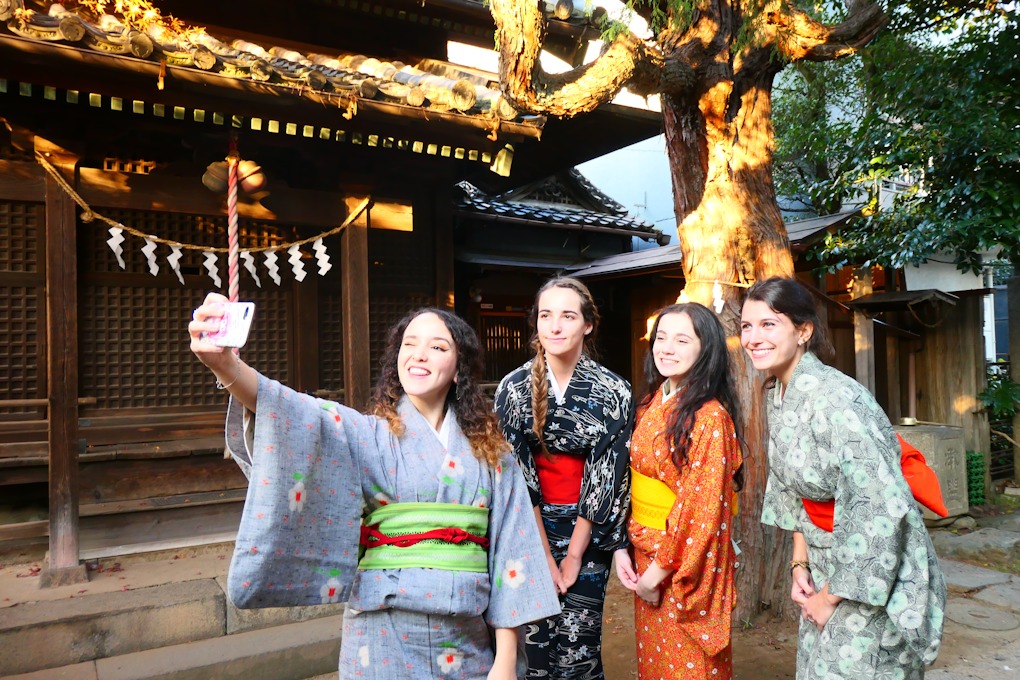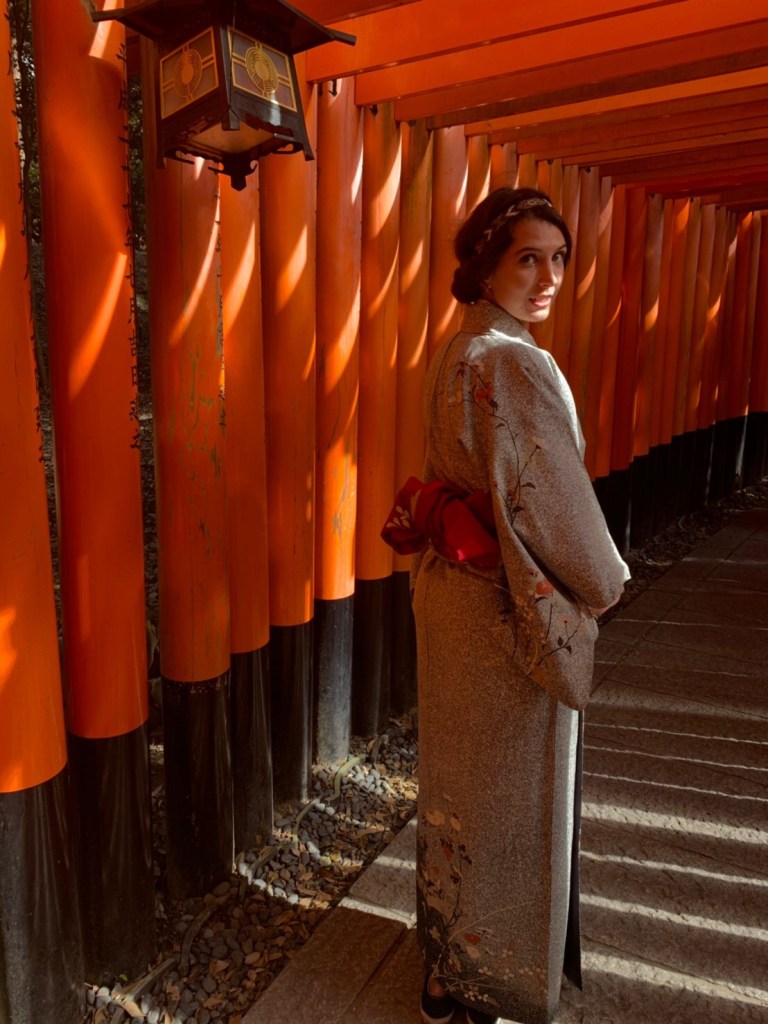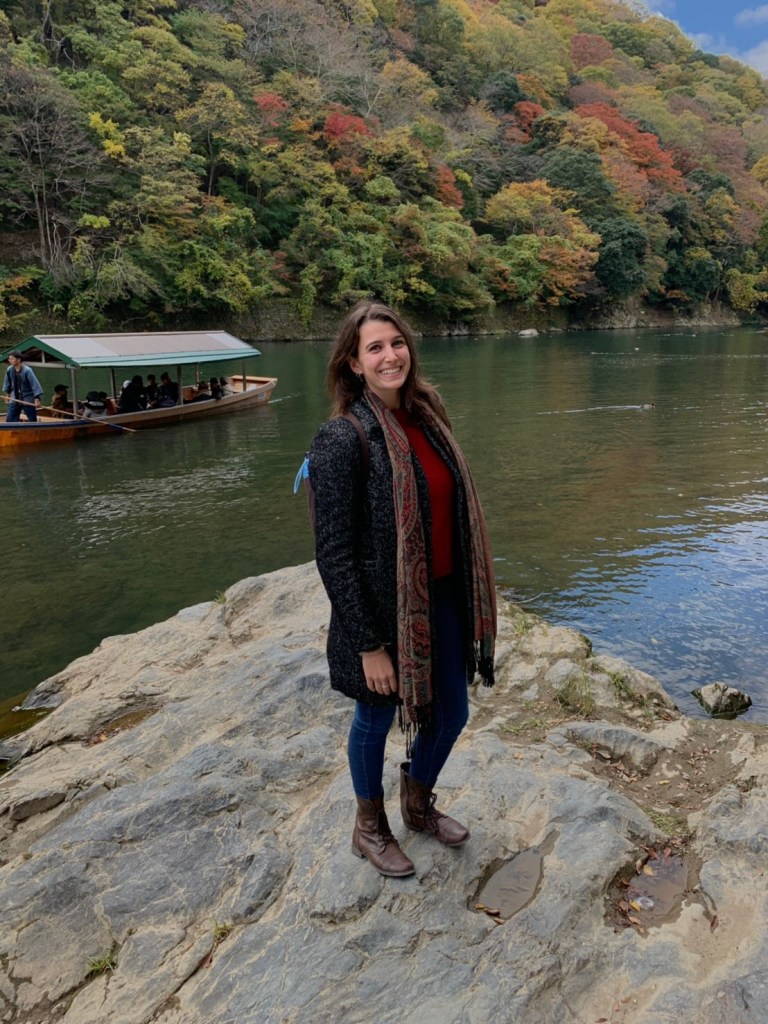
AUGUST 2021 (VOL.166)
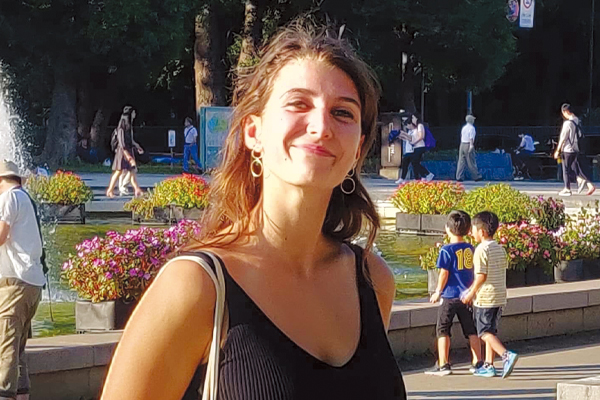
What do you study in Japan?
I came to Japan as part of an exchange program proposed by my University and in partnership with Tokyo University of Foreign Studies (東京外国語大学). As such, I am mainly focused on studying Japanese – I have 9 hours of Japanese classes per week, and three mandatory classes in English.
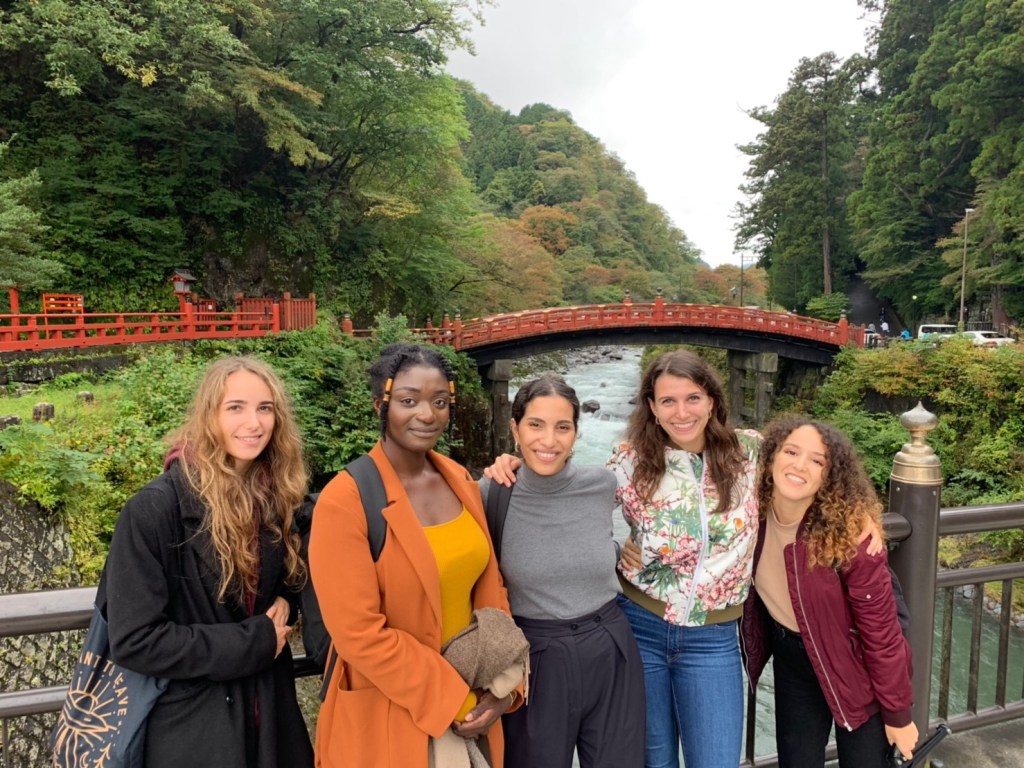
What do you find different about living in Japan over the term compared to when you first arrived or came as a tourist?
I had no idea what to expect and I came to Japan with the wish to see Tokyo, and Japan with my own eyes, and make my own opinion about it, whether it resulted in me loving it or not.
I found myself getting accustomed to living in Japan far more quickly than I had anticipated. After the jarring first trip from Narita to Fuchu, and the dizzying first encounter with Shinjuku station, everything else fell into place rather easily, to my great surprise.
Upon arriving, I had two years of formal Japanese classes under my belt, but over a year without any such classes, I could not make even three coherent words. I used to nod dumbly when the clerks at conbinis (convenience store) talked to me, and had my heart pounding like I was about to take a life-altering exam whenever I had to order food in restaurants. Two months later, and it seems like the place I live in, and those I visit, have different colors, are sharper and brighter. My ability to read kanjis has skyrocketed, my vocabulary has expanded, and my self-confidence in attempting to speak has been emboldened by it. I no longer feel like I am totally illiterate, and that makes a massive difference in the way I feel here and can interact with people around me.
Are there any aspects of the Japanese culture or its people that you find bizarre or unique?
‘Love hotels’ comes to mind. I’ve never been to one, but I walked nearby some of them, with crazy architecture and theme-based decorations. It’s definitely not something I have ever seen in France, so I was a little surprised at first. It is quite an interesting concept. I suppose that many Japanese young people still live with their parents. Or it may be that Japanese houses lack noise insulation in some houses.
I’d more likely use the word “interesting” for this next one. Back in France bars and clubs are very popular. Japan does have many clubs, and izakayas are very often absolutely packed due to their popularity as an evening outing place, but what I wasn’t expecting quite as much, was how prevalent karaoke booths are. I had no idea why there were so many like that!
What parts of Japanese culture do you recommend that foreign people try to experience?
The food is an absolute must!
One thing you absolutely want to try also, is wearing a kimono. Other than being particularly beautiful, it is Japan’s most well-known (abroad that is) example of traditional clothing. The motifs and colors vary based on different factors, including seasons, and hold symbolic meaning for those savvy enough to know about them. They can easily be rented, but I ended up buying two of them in a second-hand market in Yokohama for a relatively cheap price, considering how expensive kimonos can be. One of my best memories was spending an entire day wearing a kimono and strolling in the traditional neighborhood of Kyoto. It was magical.
The second thing I also recommend foreigners to try is to go and stay at a traditional inn, Ryokan, if possible with an onsen (hot springs). You get to sleep on a traditional futon (which is really comfortable, by the way) arranged on tatami floors, in rooms surrounded by sliding paper panels. You have to be naked to go into the onsen and wash yourself before entering the baths at individual washing stations, which might seem strange to some people, but you really do not want to miss it. Stepping in the hot water (hot, as in 40°C / 104°F, give or take) feels like melting in contentment, thanks to both the warmth and the minerals it contains, and you sleep amazingly well afterwards.
